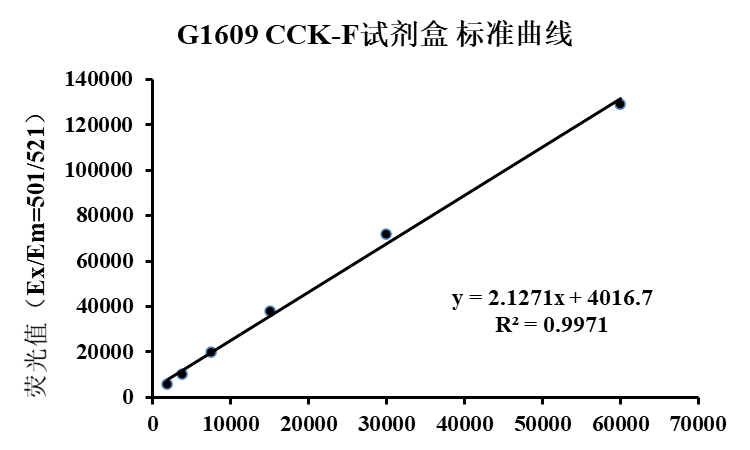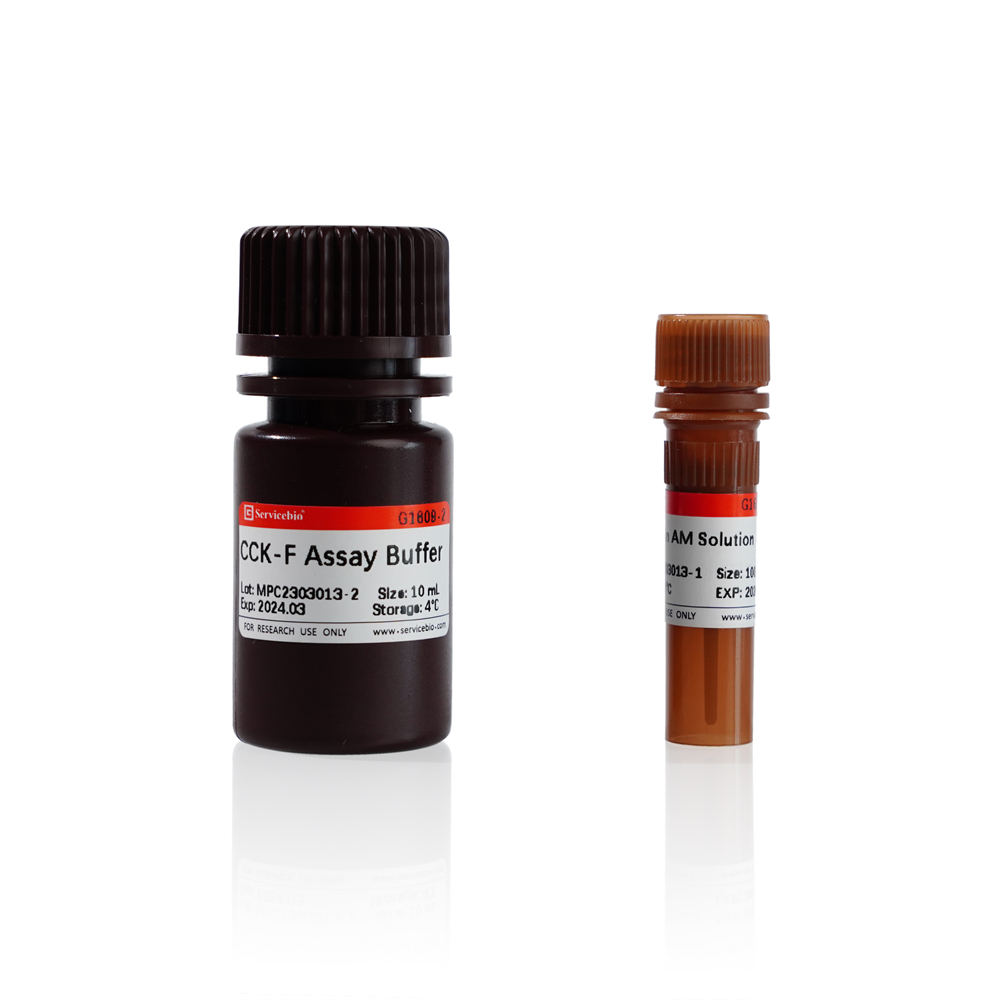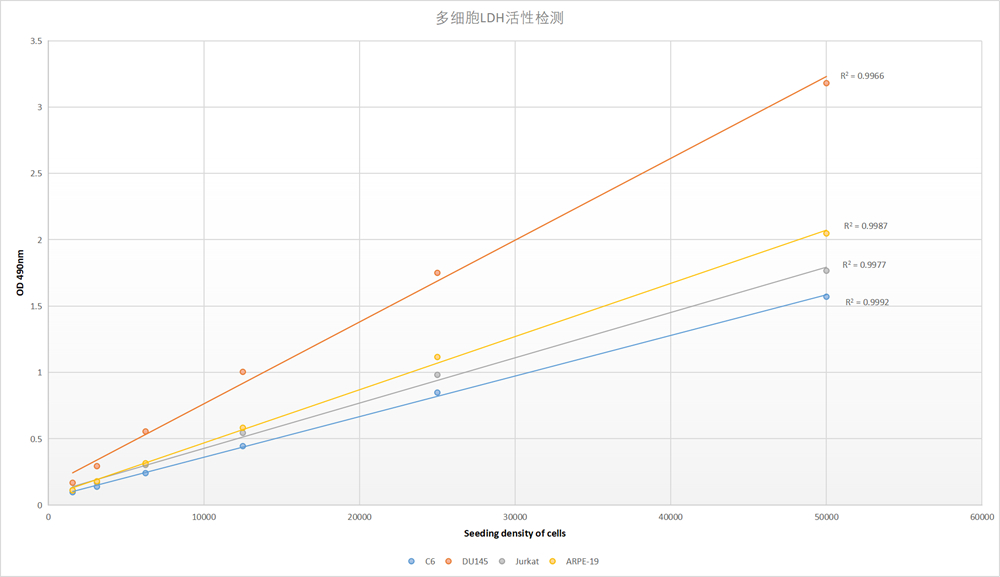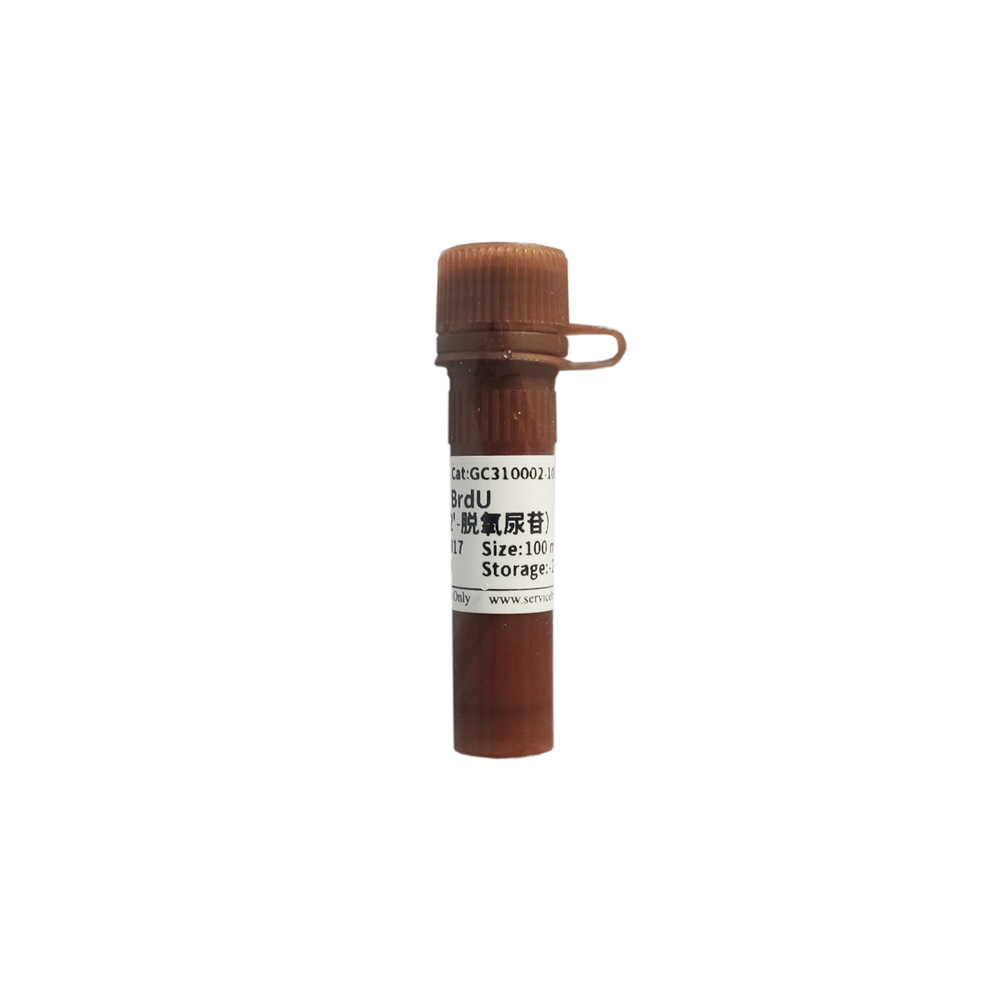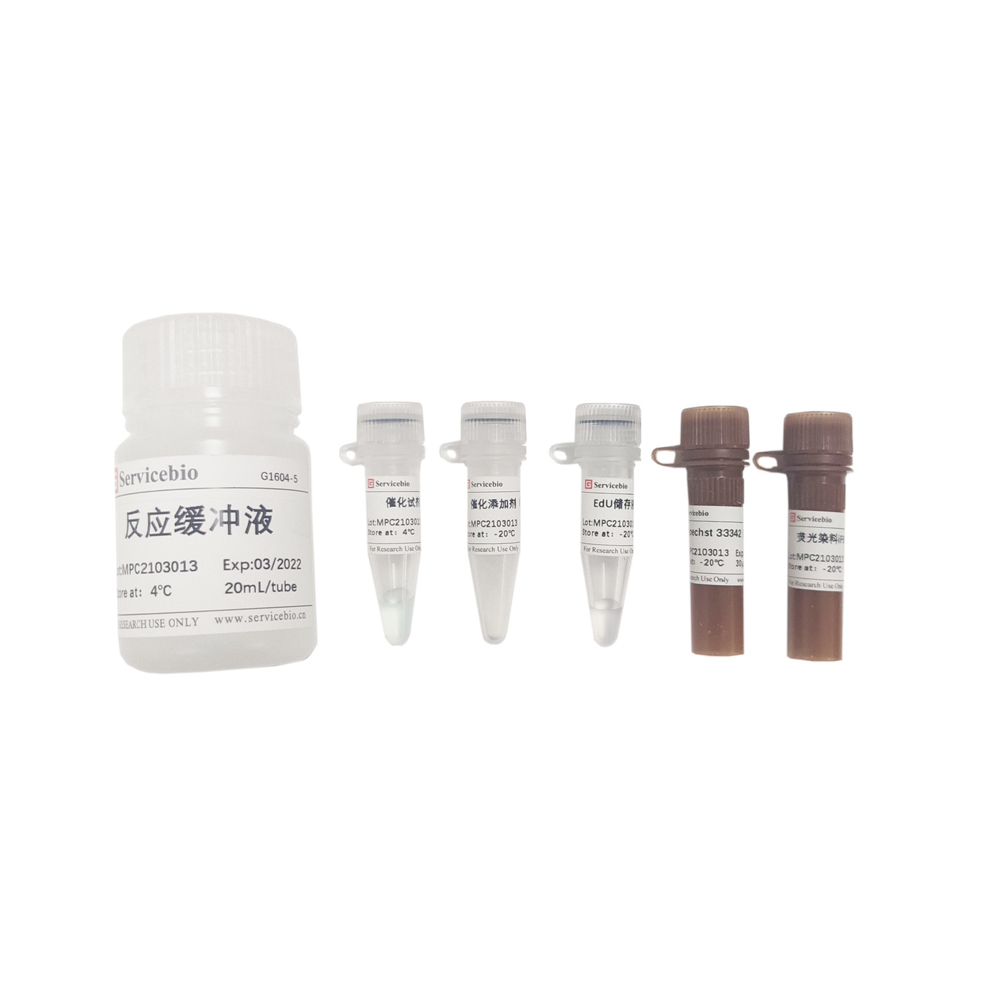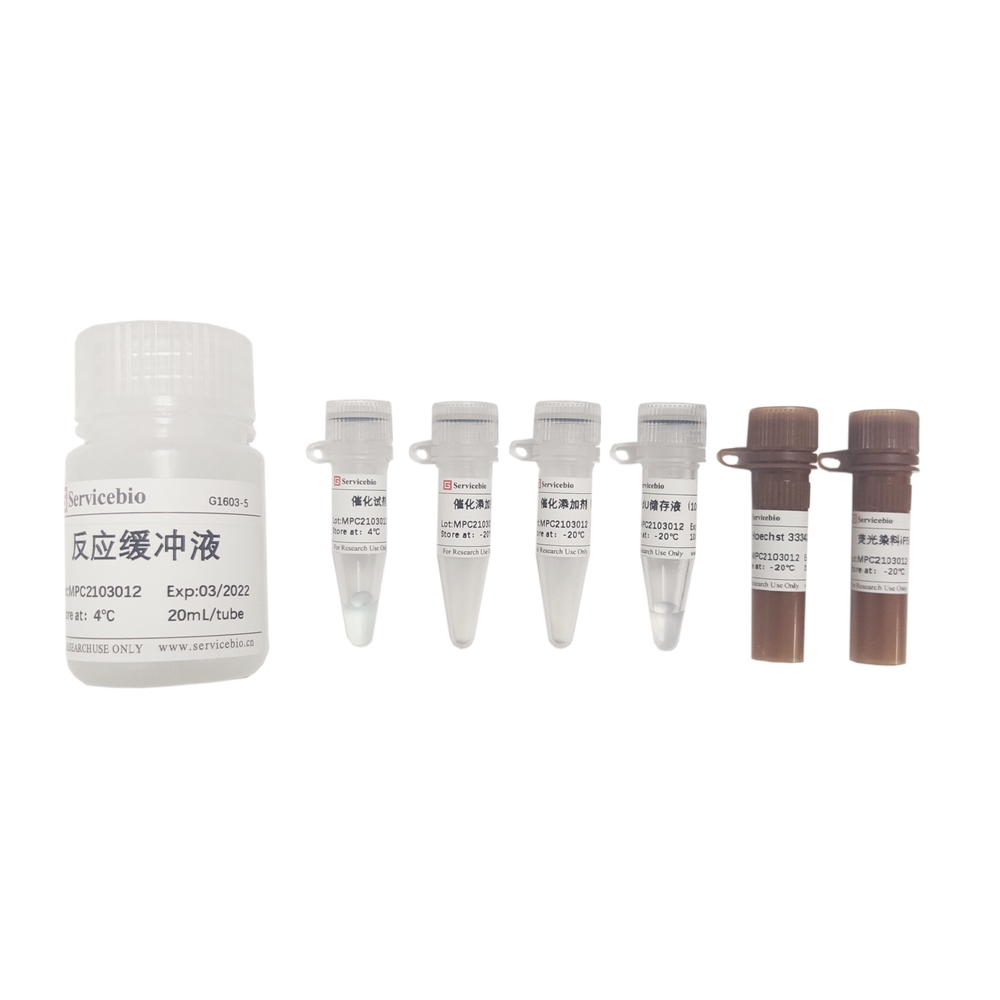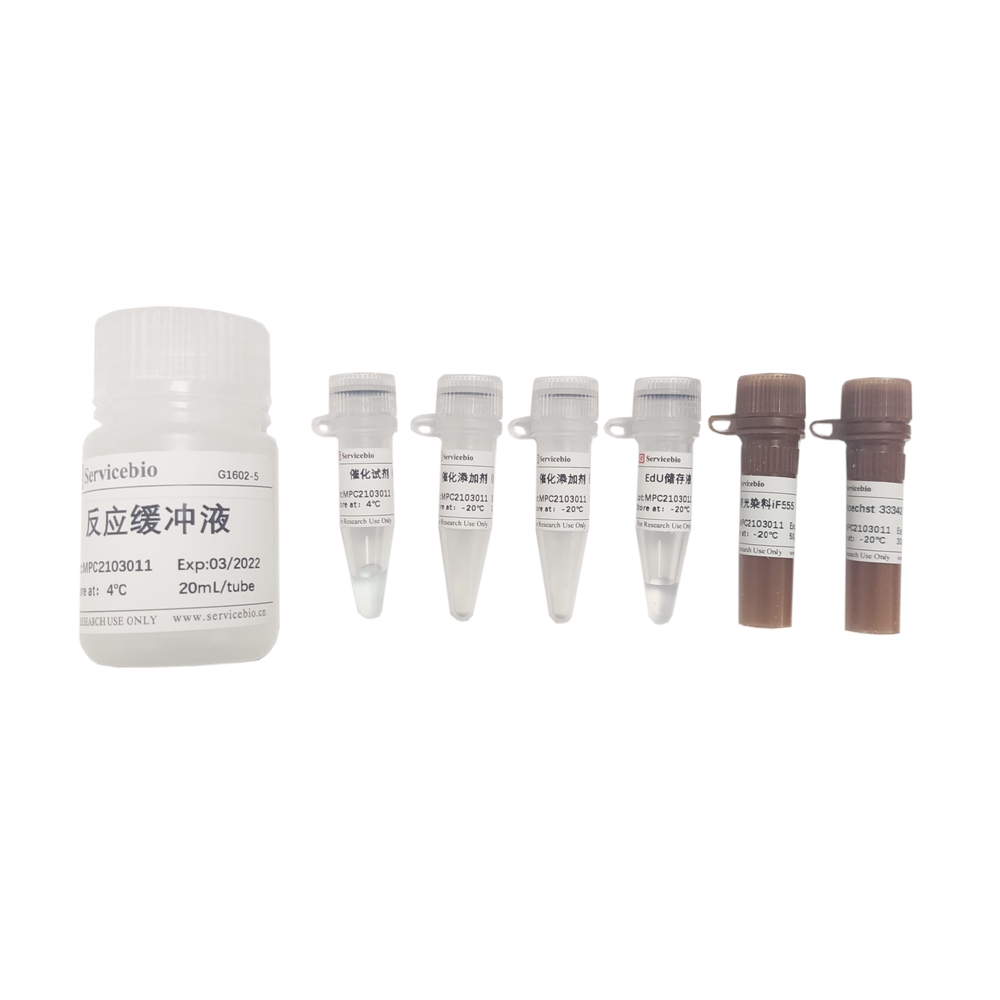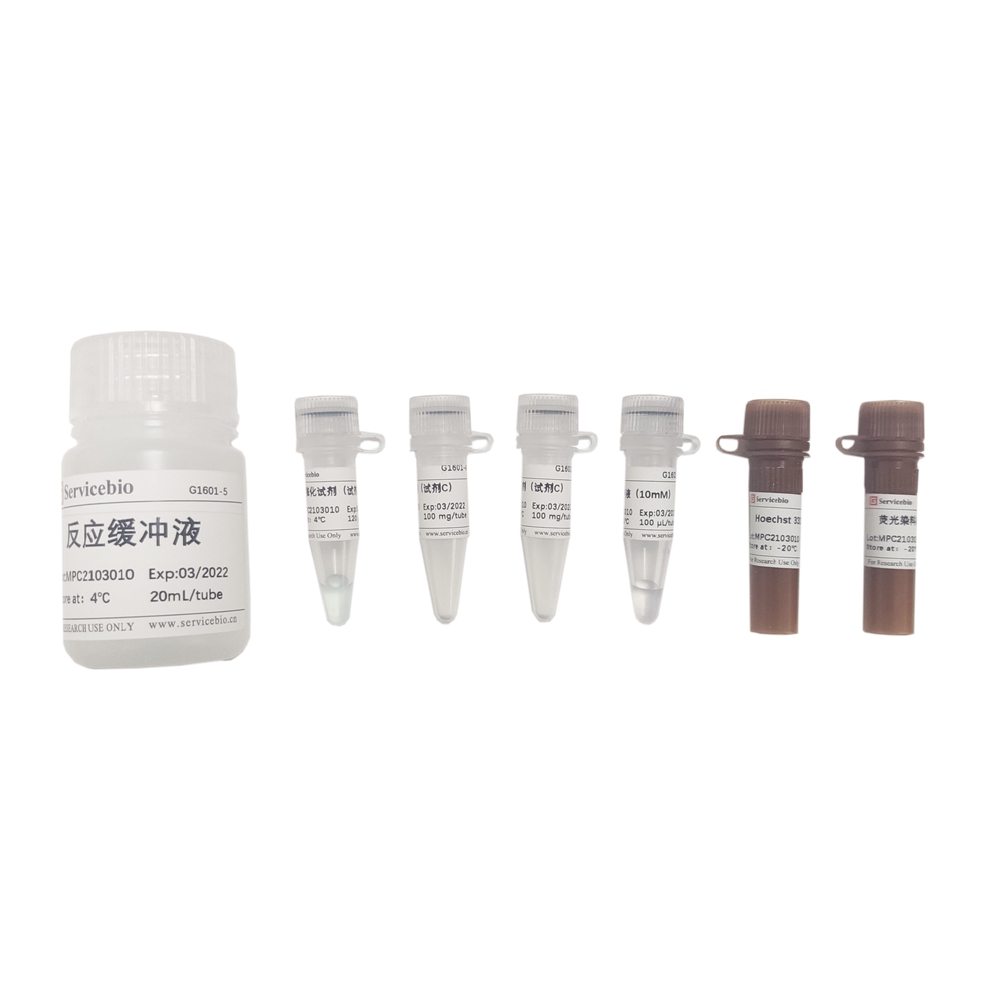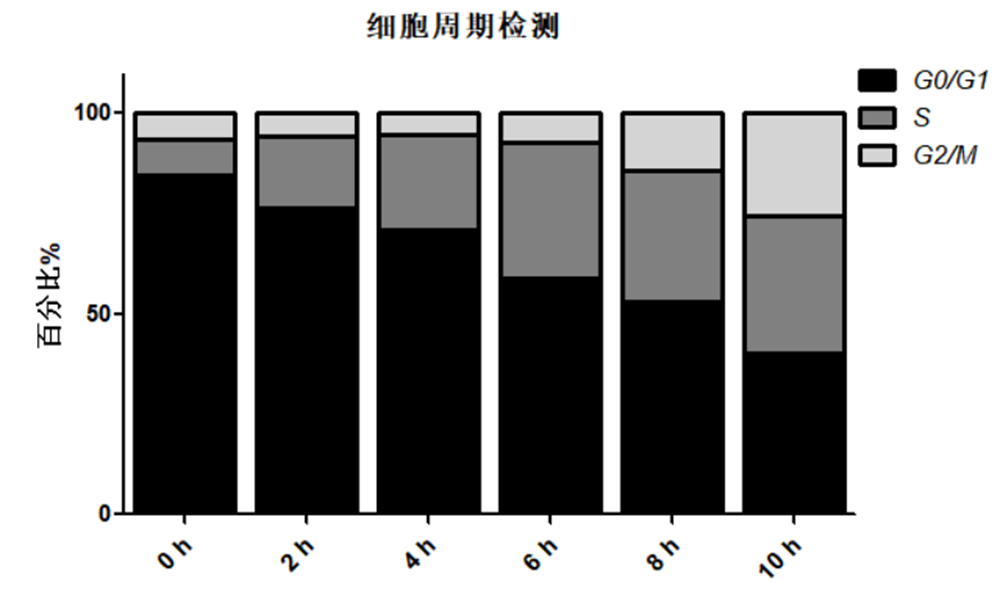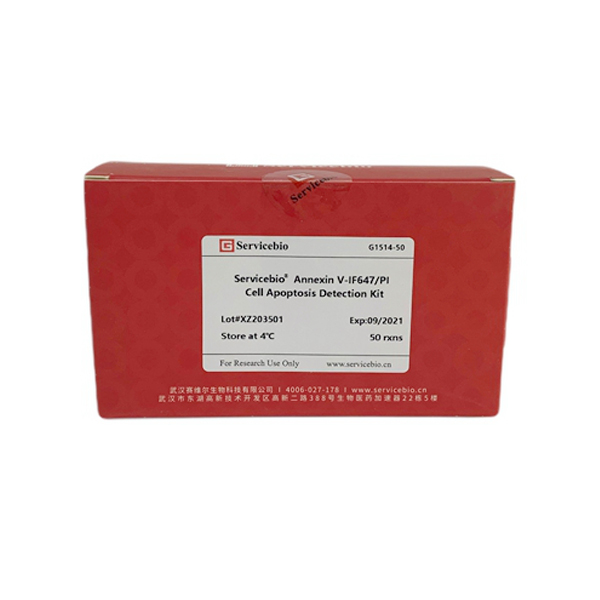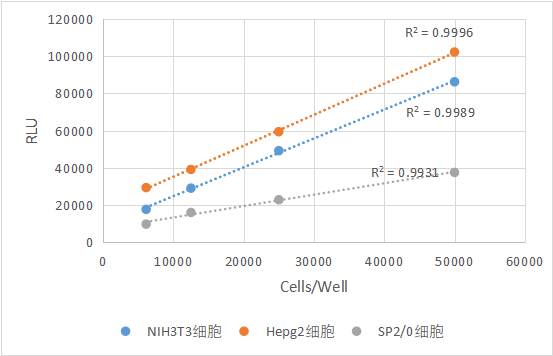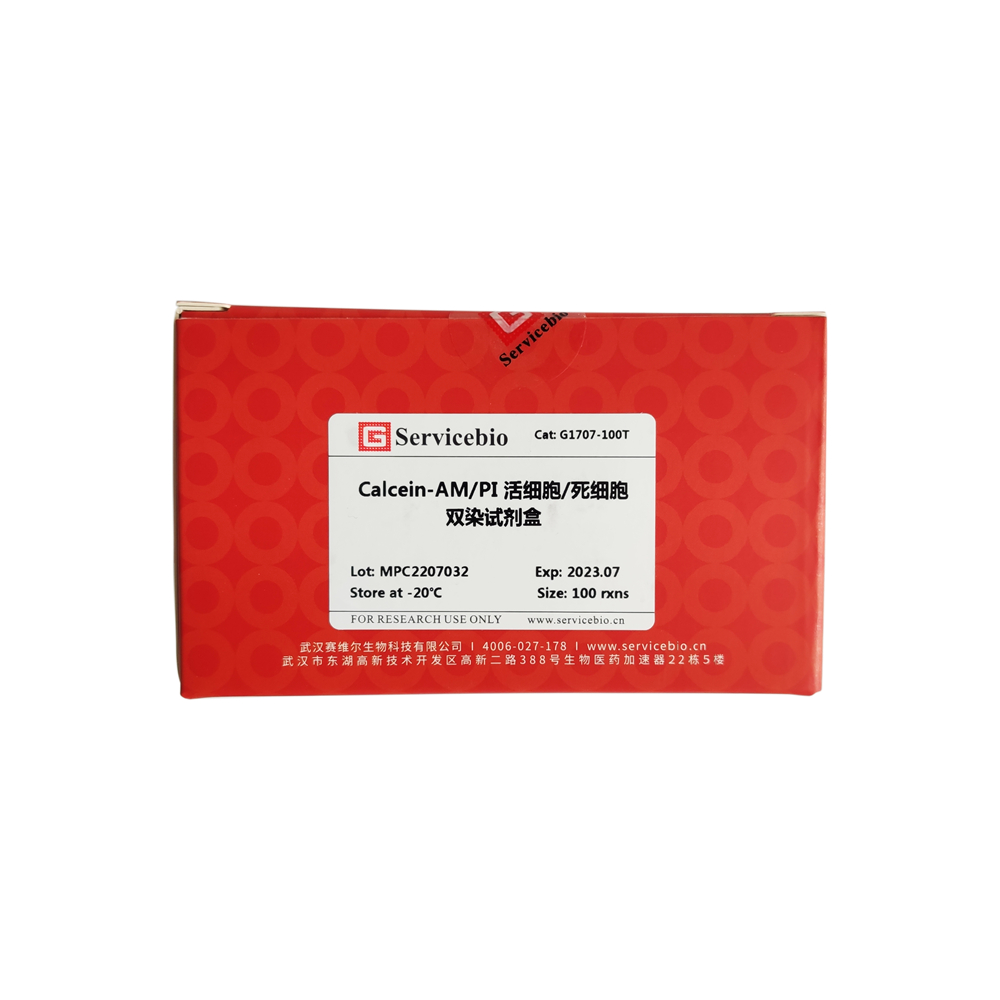Description
Introduction
Calcein AM is based on Calcein (calcein), and introduces an acetoxymethyl (AM) group. The AM group not only covers the molecular part of Calcein chelated calcium but also enhances its hydrophobicity, so it can Calcein AM easily penetrates the living cell membrane and is cleaved to Calcein by endogenous esterases. Calcein without the AM group cannot easily pass through the cell membrane, so it is retained in the cell; in addition, the molecular part of chelating calcium is exposed, so that the Calcein probe binds to the calcium ion in living cells and emits strong green fluorescence. The lack of esterase in dead cells cannot make Calcein AM hydrolyzed into Calcein, so dead cells cannot be marked. Calcein AM has low cytotoxicity and little effect on cell functions, such as cell proliferation or lymphocyte chemotaxis. It is a fluorescent probe that is very suitable for live cell staining.
Calcein AM Cell Viability Assay Kit, which is also known as Cell Fluorescence Counting Kit (CCK-F), is a detection kit to evaluate cell viability, toxicity and proliferation by labeling live cells with Calcein AM fluorescent probe. After optimization and debugging, this kit not only has high detection sensitivity and wide linear range, but also requires only a short incubation time to complete the detection of cells. The operation is simple and does not require radioisotope labeling or crystal dissolution, which can reduce errors caused by experimental operations and improve accuracy and repeatability.
Storage and Handling Conditions
Transport with wet ice;
Store at -20°C. Calcein AM solution should be stored in the dark, and repeated freezing and thawing should be avoided as much as possible; it is valid for 12 months.
Components
| Component Number | Component | G1609-100T | G1609-500T |
| G1609-1 | Calcein AM Solution | 100 μL | 500 μL |
| G1609-2 | CCK-F Assay Buffer | 10 mL | 50 mL |
| Instruction Manual | 1 pc | ||
Steps
1. Preparation of Calcein AM detection working solution:
According to the usage amount of 100 μL per well of 96-well plate and referring to the table below, mix Calcein AM solution and CCK-F detection buffer in proportion to prepare Calcein AM detection working solution.
| Component | 10 Samples | 50 Samples | 100 Samples |
| Calcein AM Solution | 10 μL | 50 μL | 100 μL |
| CCK-F Assay Buffer | 1 mL | 5 mL | 10 mL |
2. Adherent cell detection:
The following steps mainly correspond to the 96-well plate detection scheme, and other well plate systems need to be adjusted according to the situation.
a. Cell seed plate: cells are evenly seeded in a 96-well plate at a certain density, and they are treated with drugs or other pre-treatments (the seeding density is determined by factors such as cell size, growth rate, etc.);
b. (Optional) Cell washing: aspirate the original medium and wash 1-2 times with PBS buffer (recommended G4202) to reduce the interference of serum, phenol red or drugs on the experimental results;
c. Probe labeling: After removing the cell culture medium or PBS buffer, add 100 μL Calcein AM detection working solution, and incubate at 37°C for 30 min in the dark;
d. (Optional) Cell incubation: replace the cell culture medium and continue to incubate for 15-30 min to ensure that the intracellular Calcein AM is fully hydrolyzed;
e. Fluorescence detection: use a microplate reader for fluorescence reading, the maximum excitation wavelength of Calcein AM probe is 501 nm, and the maximum emission wavelength is 521 nm. Cell viability is proportional to fluorescence intensity. Depending on the purpose of the experiment, nuclei can also be further counterstained or detected using other instruments such as fluorescence microscopy.
3. Suspension cell assay:
a. Cell seeding: cells are evenly seeded in a 24-well plate at a certain density, and they are treated with drugs or other pre-treatments (the seeding density is determined by factors such as cell size, growth speed, etc.);
b. (Optional) Cell washing: remove the original medium by centrifugation at 1000 g for 3-5 min, wash with PBS buffer 1-2 times, and centrifuge at 1000 g for 3-5 min each time to reduce serum, phenol red or drugs interference with experimental results;
c. Probe labeling: After centrifuging at 1000 g for 3-5 min, remove the cell culture medium or PBS buffer, add an appropriate amount of Calcein AM detection working solution, and incubate at 37°C for 30 min in the dark;
d. (Optional) Cell incubation: replace the cell culture medium and continue to incubate for 15-30 min to ensure that the intracellular Calcein AM is fully hydrolyzed;
e. Fluorescence detection: use a microplate reader or flow cytometer for fluorescence detection, the maximum excitation wavelength of Calcein AM probe is 501 nm, and the maximum emission wavelength is 521 nm. Cell viability is proportional to fluorescence intensity. Depending on the purpose of the experiment, nuclei can also be further counterstained or detected with other instruments such as fluorescence microscopy.
Note
1. Briefly centrifuge Calcein AM solution before use to reduce reagent loss.
2. Avoid repeated freezing and thawing of Calcein AM solution. After receiving the product, it is recommended to pack it properly and store it in a sealed container at -20°C away from light.
3. Calcein AM is unstable in aqueous solution. The working solution of Calcein AM should be prepared and used immediately, and it will be effective within 24 hours.
4. Due to different cell states, the incubation time and concentration of Calcein AM detection working solution can be adjusted according to the situation.
5. When using a microplate reader to detect fluorescence intensity, please use a black cell culture plate.
6. Fluorescent dyes have quenching problems, please avoid light for operation and storage.
7. For your health and safety, please wear a lab coat and gloves when operating.
For Research Use Only!
|
Cat.No.
|
Product Name
|
Spec.
|
Operation
|
|---|
|
G1601
|
Click-iT EdU-488 Cell Proliferation Detection Kit
|
100 T
|
|
|
G1602
|
Click-iT EdU-555 Cell Proliferation Assay Kit
|
100 T
|
|
|
G1603
|
Click-iT EdU-594 Cell Proliferation Assay Kit
|
100 T
|
|
|
G1604
|
Click-iT EdU-647 Cell Proliferation Assay Kit
|
100 T
|
|
|
G1609-100T
|
Calcein AM Cell Viability Assay Kit
|
100 T
|
|
|
G1609-500T
|
Calcein AM Cell Viability Assay Kit
|
500 T
|
|
|
G1610-100T
|
LDH Cytotoxicity Assay Kit
|
100 T
|
|
|
G1707-100T
|
Servicebio® Calcein-AM/PI Living / Dead cell Double Staining Kit
|
100 T
|
|
|
G4101-1000T
|
MTT Cell Viability Assay Kit
|
1000 T
|
|
|
G4101-200T
|
MTT Cell Viability Assay Kit
|
200 T
|
|
|
G4102-100T
|
Brdu Detection Kit
|
100 μL+30 mL×4
|
|
|
G4102-50T
|
Brdu Detection Kit
|
50 μL+30 mL×4
|
|
|
G4103-1ML
|
Cell Counting Kit-8
|
1 mL (100T)
|
|
|
G4103-5ML
|
Cell Counting Kit-8
|
5 mL (500T)
|
|
|
G4104-100T
|
MTT Cell Proliferation and Cytotoxicity Assay Kit
|
100 T
|
|
|
G4104-500T
|
MTT Cell Proliferation and Cytotoxicity Assay Kit
|
500 T
|
|
|
G5059-100MG
|
EdU (5-Ethyl-2′-deoxyuridine)
|
100 mg
|

